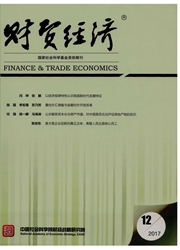

 中文摘要:
中文摘要:
双边税收协定是国与国之间为了避免双重征税而签订的协议,但却往往被第三国滥用于避税目的,与避税地进行税收情报交换是为了更好地打击跨国避税,但实际效果如何尚不明确。我国到目前为止已经与101个国家签订了双边税收协定,并且在短短5年内和世界上主要避税地签订了税收情报交换协定。本文构建了涵盖78个投资国和238个被投资国2001—2013年的数据库,就双边税收协定和税收情报交换对跨国公司避税行为的影响进行了研究。研究发现,跨国投资者确实会将有价证券资产转移至没有签订税收情报交换协定的国家,尤其是那些与被投资国签订了双边税收协定的国家。例如,某国与避税地签订税收情报交换协定后,该国转移到避税地的有价证券资产平均下降了30.39%。我国较为广泛的双边税收协定网络和与避税地进行的税收情报交换对于打击跨国避税起到了积极的效果。
 英文摘要:
英文摘要:
Bilateral tax conventions are tax treaties between sovereign states in order to relieve double taxation, but they can also been used for tax avoidance. Though the effect is not clear yet, tax information exchange is introduced. China has signed 100 bilateral tax conventions and exchanged tax information with main tax havens. This paper builds a database covering 78 resident states and 238 source states from 2001 to 2013. We find that the offshore investors will move their portfolio assets to countries without tax information exchange, especially those having bilateral tax conventions. After exchanging tax information with tax havens, the portfolio assets reduce by 30.39 %. The broad bilateral tax convention network and tax information exchange with tax havens can help China effectively fight against tax avoidance.
 同期刊论文项目
同期刊论文项目
 同项目期刊论文
同项目期刊论文
 期刊信息
期刊信息
